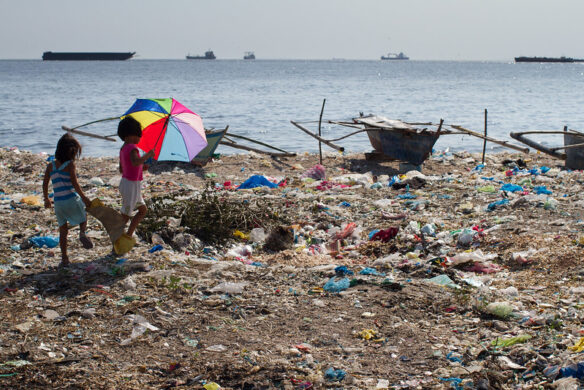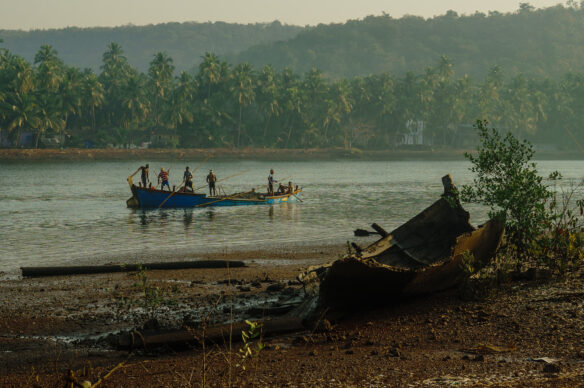
“Before its Gets Too Late.” Captions and Photo source: ©© Baban Shyam
By Michael Oko, ©© World Ressources Institute;
“Doha, Qatar, may not the first place that you’d pick for a global conference—many people would be hard-pressed to find it on a map. Yet, it’s the location of this year’s global UN climate negotiations (COP 18).
It’s midway through the final week of the negotiations, yet there’s an eerie calm in the sprawling conference hall. The scene here is different than the past two years (in Durban and Cancun, respectively), both of which were filled with tension and even moments of drama. Certainly, no one expected a major breakthrough this year, but the lack of urgency here is disquieting.
The Climate Change Risks Are Increasingly Clear
What’s happening inside the conference center stands in stark contrast to what we’re witnessing outside. Just yesterday, an unusual and massive storm, Typhoon Bopha, swept across the Philippines, taking hundreds of lives and displacing thousands more. While typhoons are common in the Philippines, this storm is the most southern on record and arrived particularly late in the season. Meanwhile, people in the eastern United States and Caribbean are still recovering from Hurricane Sandy. And, in India, a new report warns that more droughts loom as monsoons will bring 70 percent less water in the years ahead.
This is the increasingly volatile world in which we live. More and more people are starting to understand that climate impacts are here and are already affecting our daily lives.
And yet world leaders are largely still lacking the political will to shift direction. For instance, global dependence on fossil fuels remains largely unchecked. A recent WRI report shows that there are nearly 1,200 coal plants with 1400 gigawatts of total capacity proposed for development across the globe. Meanwhile, government subsidies for fossil fuels are six-fold those for renewable energy. And the location of the COP 18 conference—in one of the quintessential oil nations—is hard to ignore.
Now Is the Time for Action
What happens here over the next few days matters. It’s time for countries to step up with a more productive approach, perhaps with some new commitments that will inject a greater sense of urgency into these talks.
We need to get moving on the new climate deal that was agreed to in Durban—and we need to ensure that it’s both ambitious and fair to all parties. And, if negotiators can resolve the issues around the Kyoto Protocol and the Long-Term Cooperative Action (or LCA) track, that would bring all countries under a single, common platform. That, in itself, would be an accomplishment that could set the stage for a more streamlined and effective process ahead. Beyond that, it will be important that we see a serious, detailed work plan for the new climate agreement emerge out of these negotiations.
The scale of the challenge is clear. As UN Secretary General Ban Ki-moon said yesterday, climate change is an “existential challenge for the whole human race.” Let’s hope that negotiators are ready to take up a more inspired, urgent, and ambitious pace…”
At Climate Talks, a Struggle Over Aid for Poorer Nations, The New York Times
World’s Nations Face ‘Climate Cliff’ at Doha’s COP 18 Summit, Guardian UK









